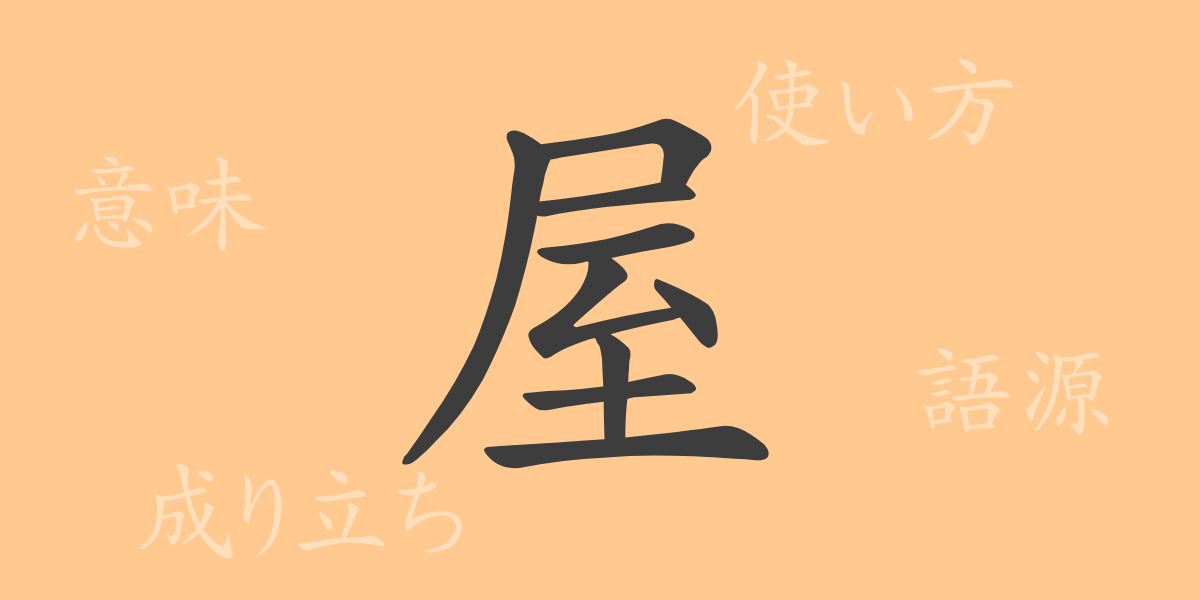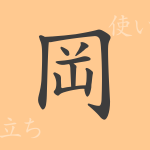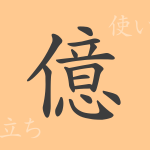“
The beauty of the Japanese language is also reflected in its delicate characters. One of the common kanji characters in Japanese, “”屋”” (Ya), is deeply rooted in our daily lives. In this article, we will explore the profound world of “”屋”” (Ya), from its origin to its meaning, usage, reading, and even the idioms and phrases that use “”屋”” (Ya). Please join us on this journey to rediscover the charm of the Japanese language.
The Origin (Etymology) of 屋 (Ya)
Exploring the origin of the kanji “”屋”” (Ya) is touching upon the history of language. Evolved from ancient Chinese pictographs, “”屋”” (Ya) originally represented a pictorial symbol meaning a roof. This kanji, said to depict the beams supporting the roof and the person underneath, has been refined over time to settle into the form we see today. Just as a roof symbolizes the role of a shelter protecting people, “”屋”” (Ya) has become a kanji that evokes protection and safety.
The Meaning and Usage of 屋 (Ya)
The basic meaning of “”屋”” (Ya) is to refer to the roof of a building or a house, but it has a variety of usages that go beyond that. For example, “”屋”” (Ya) is also used to indicate shops or businesses, serving as a suffix to denote the type of goods or services the store deals in. It is widely used in the Japanese language in forms such as “”本屋”” (Honya, bookstore) and “”八百屋”” (Yaoya, greengrocer). Additionally, “”屋”” (Ya) can be used in a metaphorical sense, with “”詩屋”” (Shioku) referring to a person who writes poetry, that is, a poet.
Reading, Stroke Count, and Radical of 屋 (Ya)
The kanji “”屋”” (Ya) also attracts attention for its reading and composition.
- Reading: The on’yomi is “”おく”” (Oku), and the kun’yomi is “”や”” (Ya).
- Stroke Count: The stroke count of “”屋”” (Ya) is 10.
- Radical: The radical is 宀 (Ukanmuri), which means a roof.
Idioms, Phrases, and Proverbs Using 屋 (Ya) and Their Meanings
Idioms, phrases, and proverbs containing the kanji “”屋”” (Ya) are deeply rooted in the Japanese language. For example, “”屋上屋を架す”” (Okujō oku -wo- ka-su) is an expression that criticizes redundant duplication, and “”屋”” (Ya) is also used in the phrase “”鳶が鷹を生む”” (Tob ga-taka -wo -u-mu), which is a metaphor for displaying unexpected talent. “”瓦屋が瓦を葺かぬ”” (Kawaraya- ga- kawara -wo -fu-kanu) is a proverb meaning that one does not use one’s own work or skills for oneself. These idioms, phrases, and proverbs demonstrate the breadth of meaning that “”屋”” (Ya) possesses.
Summary of 屋 (Ya)
Through this article, we have been able to overview the multifaceted nature of the kanji “”屋”” (Ya) and its usage examples. From a character representing a mere roof or house to a term indicating commerce or occupations, and further to an essential element in the rich expressions of the Japanese language, “”屋”” (Ya) plays a significant role in the Japanese language. By knowing the history and culture behind the words we use every day, we can deepen our understanding of language and enable richer communication.
“

























